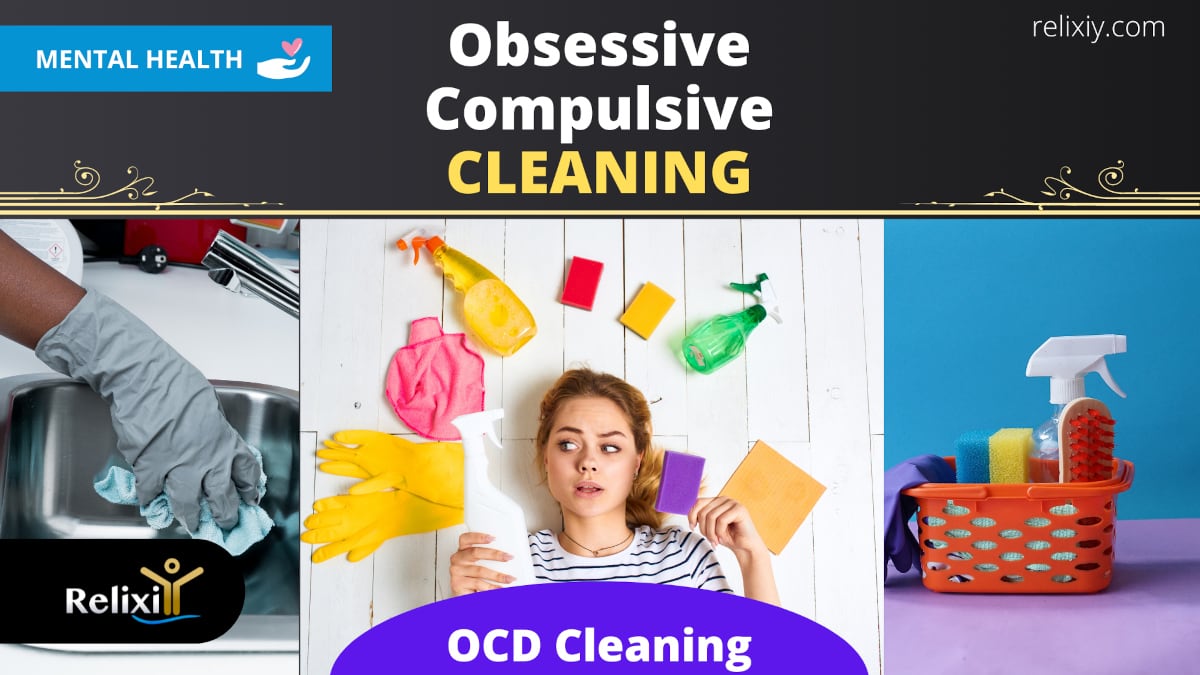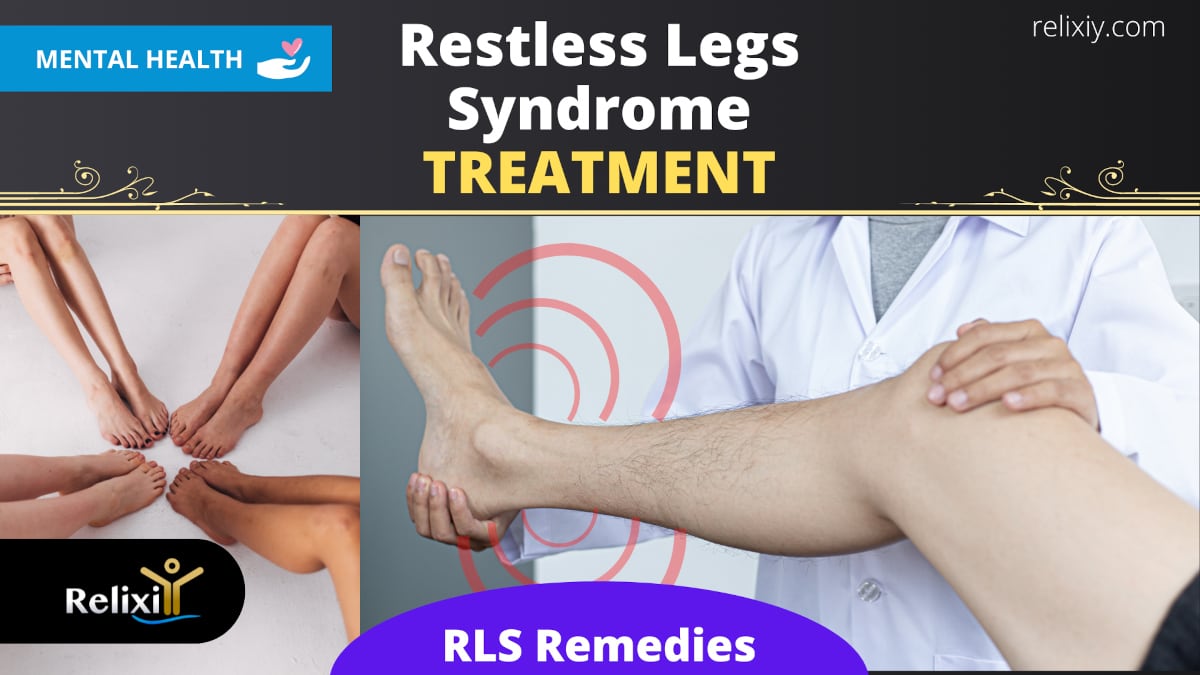How to stop OCD cleaning? Living with someone with OCD can be difficult, but obsessive-compulsive cleaning can be treated in a number of ways.
Obsessive-compulsive cleaning is usually due to fears of contamination and the need for symmetry and balance, which can lead to serious anxiety. OCD can be treated with medications, therapy, and a number of remedies.
Understanding how OCD works and why people with an obsession for cleaning feel the need to do the things they do will go a long way in helping to manage the symptoms and recovering from it.
But why is excessive cleaning in particular such a common experience with OCD? What exactly does it involve and what causes it? How can you support someone who has OCD cleaning?
What is Obsessive compulsive Cleaning (Cleaning OCD)?
Having an obsession with cleaning is something very often associated with OCD, but only some people with OCD develop an obsession with cleaning in particular.
Just because someone appears to be overly concerned with cleanliness doesn’t mean that they have OCD for cleaning.
OCD creates great difficulties for the people who have it. The obsessive thoughts and compulsive behaviors that it involves cause the sufferer to feel distressed and anxious, and impair their quality of life.
Someone who has OCD of cleanliness may want to stop their behavior but isn’t able to.
If someone cleans a lot more than most people, but doesn’t feel any distress or have other negative effects in their life as a result of it, it probably would not be considered OCD, especially if they simply enjoy keeping things clean and tidy.
OCD can take many forms and no two people will be affected by the condition in the exact same way. Nevertheless, an obsession for cleaning is a common point for many who have it.
What Is OCD Cleaning?
So why do many people with OCD have a cleaning obsession?
This is much more than just having a desire for their surroundings to be clean and ordered.
OCD is described as a person experiencing many unwanted and obsessive thoughts, which make them feel anxious or disturbed. This leads to carrying out certain actions that they feel they have to do to relieve those negative thoughts.
A person with OCD who cleans excessively doesn’t do so because they want to, but because they fear bad things will happen if they don’t, and such thoughts cause them a lot of anxiety.
OCD is experienced differently by each person who has it, and there are many reasons why someone with the condition is dealing with obsessive cleaning.
OCD cleaning and washing is most associated with obsessions related to contamination. This could be a fear of being infected by diseases, coming into contact with dirty substances like germs or dirt, or even a fear of other contaminants such as radiation.
A person with this kind of obsession feels that they have to clean as much as they can in order to avoid the effects of such contaminants.
Another common obsession that may be the cause for some people is the need for things to be arranged or ordered in a certain way and feeling very anxious if they’re not.
This could manifest as needing objects in the house and elsewhere to be in certain places or face a certain way, or lining up their possessions in a certain order. Someone who has obsessive thoughts like this might believe that bad things will happen to them or people that they know if they don’t arrange things properly like this.
As with other obsessions people with the condition may experience, OCD cleaning can lead to a lot of problems and prevent the sufferer from enjoying everyday life. In severe cases, their habits may take up a large part of their day.
If you or someone you know is affected by OCD for cleaning, it is very important that proper treatment is sought so that the road to recovery can begin.
OCD cleaning Treatments, How To Stop Obsessive cleaning
The treatments for OCD and compulsive obsessive cleaning can vary depending on your own circumstances, how much the condition is affecting your daily life, and in which ways.
Treatment very often involves therapy, for example, cognitive behavioral therapy (CBT), where a therapist works with you to help you to analyze the problems that you’re facing, face your fears, and identify any unhelpful thoughts and behaviors that you have.
If your OCD is very severe, then you may need therapy for longer, or you may need to take certain medications that help to reduce the symptoms.
These may seem scary, and many people find the treatment process to be difficult at times, but treatment for OCD is usually very effective, and with time and effort it can make the condition become so much less of a burden to carry.
Alongside those main treatments, there are many other remedies that you can use to improve your well-being with OCD and to make your symptoms easier to handle.
Here are a few of the most effective natural remedies for OCD:
- Find other people who have or had OCD. You’re not alone. There are also lots of famous people with OCD and being able to talk with people who have had similar experiences as yourself can be extremely enlightening. They’ll also be able to give you advice and new ideas for managing your symptoms and helping to maintain your wellbeing. Additionally, it will just feel very reassuring to be a part of a community of supportive people who understand your struggles.
- Stress relief and relaxation techniques. Stress is often one of the major triggers for OCD cleaning symptoms, so finding ways to deal with it is an important part of managing the condition. You could try mindfulness techniques and meditation for example, or complementary therapies such as massages or yoga. Something as simple as going for a walk in nature might also help you out a lot. These ideas won’t instantly erase your stress, and some might not work well for you, but it’s well worth giving them a go and seeing what does help you.
- Talk to your family members or other loved ones about your OCD. This might appear very difficult and scary to do. However, it’s important that the people close to you know what you’re going through so that they can better understand your point of view and provide you with support and care when they’re able to. Having OCD can also make you feel very isolated and lonely, which can make things even more difficult. Being able to talk to people you trust about your condition will help to reduce those feelings, and you can receive reassurance and love when you need it most.
- Take care of your physical health. Eating a healthy diet and getting regular exercise will go a long way to improving your wellbeing and energy levels in general, which will make it feel much easier to manage the ups and downs of having OCD. Getting proper sleep is also an essential part of good health, so make sure not to neglect it. You probably also want to refrain from consuming too much sugar, and maybe caffeine, as these stimulating substances could make you more anxious and contribute to your OCD symptoms. Both of them also have a negative effect on your sleep.
- Always celebrate your achievements. Learning to live with OCD and eventually recovering from it can be a long and difficult journey. Sometimes you might feel like you’re not making much progress or any progress at all. But it’s important to recognize that these ups and downs are natural and it doesn’t mean that you’re doing badly, so don’t get discouraged. You should take the time now to think about all of the work and effort you’ve put in, and make sure to celebrate all of the progress that you’ve made, and will make in the future.
- Use a weighted blanket. These anti-anxiety blankets can help relieve the stress and anxiety caused by OCD. This may reduce the need to compulsively clean everything around you.
In addition, you may also want to try some other OCD hacks to stop obsessive-compulsive cleaning behaviors.
living with someone with OCD cleaning
What if it isn’t you who is dealing with OCD cleaning, but someone that you’re close to? When someone you know has OCD, you may find it difficult to understand what they’re going through and how you can give them support with it.
The fact that you’re reading this means that you care a lot, which is the most important thing of all.
Here are some important ways that you could do to help when living with someone with OCD cleaning:
- Encourage and help them to find treatment. Treatment for OCD can be very effective, and if the person you know has not yet tried to find help, you should try to encourage them to start. Try to help them overcome any barriers they may have, such as if they’re anxious about seeking treatment. You could ask them if they want you to come with them to an appointment, for example. Proper treatment is the most important step to tackling OCD, and with time it is likely to improve their quality of life immensely.
- Try not to encourage any of their compulsions, instead, celebrate their achievements. It goes without saying that you don’t want to cause them any distress related to their OCD. Try your best not to take part in or reinforce their behaviors. On the other hand, when you notice that they’ve made progress, even if it’s a seemingly small improvement, hearing you recognize that achievement can be highly motivating for the person suffering from obsessive compulsive cleaning.
- Be patient and create a supportive environment for them. Overcoming OCD cleaning can take a long time and progress may not always be even. Some aspects of treatment for OCD can be difficult, and they may feel more anxious, irritated, or exhausted sometimes as a result. Just being there for them, giving them reassurance, and seeing if there’s anything you do for them can go a long way during the more difficult periods.
- Learn about OCD, like you’re doing right now. Being informed about OCD and how it can feel will make you much better at creating a supportive environment and helping out where you can. It’s also very important to be able to see the truth behind the misconceptions surrounding the condition. It may also be very helpful to search for people in the same situation as you, so you can talk about it with them.
- Keep in mind that it’s natural and okay to feel frustrated sometimes. When someone you’re close to and live with has OCD cleaning, it can be difficult for you as well and you might get annoyed with them now and again. Try to be patient and understanding, and keep in mind that OCD can be very hard to live with, and they’re sure trying their best not to bother you.
Conclusion
Whether you’re dealing with excessive cleaning as an OCD symptom yourself or if it is a family member close to you who is experiencing it, hopefully, this article has given you some helpful information about the condition.
OCD cleaning can be difficult to live with, but recovery is always very possible and you can always take action and receive support, so you don’t have to feel discouraged.





